As a breastfeeding mama, you need to eat well. Think about your daily caloric intake and how it will affect the milk that nourishes your little one. You may need 400-500 extra calories each day but what good are those if they’re not healthy?
Pamela Mahon, a nutritionist with the California-based Wholistic Kids and Families integrative medical practice, advises moms to eat whole, nutrient-dense foods for breastfeeding. She emphasizes eating pesticide, herbicide, hormone, and fungicide-free foods in order to minimize “toxic load”. Read on below as we outline our top 10 go-to foods (and liquids) that will help nourish your body during this time.
1. Water and Other Hydrating Fluids

Family nutritionist Pamela Mahon recommends at least 64 ounces of water and fresh juices each day to hydrate your brain, help de-toxify your body through sweat and clean urine, and aid in digestion. “Since your brain is mostly water, drinking it helps you think, focus, concentrate, and be more alert,” she says, adding that fresh fruit and vegetable juices, soups and broths, and homemade smoothies are also good sources of hydration. Â She cautions against artificially sweetened beverages or too much citrus juice, because the latter may cause rashes or upset tummies in nursing babes.
2. Lean Proteins
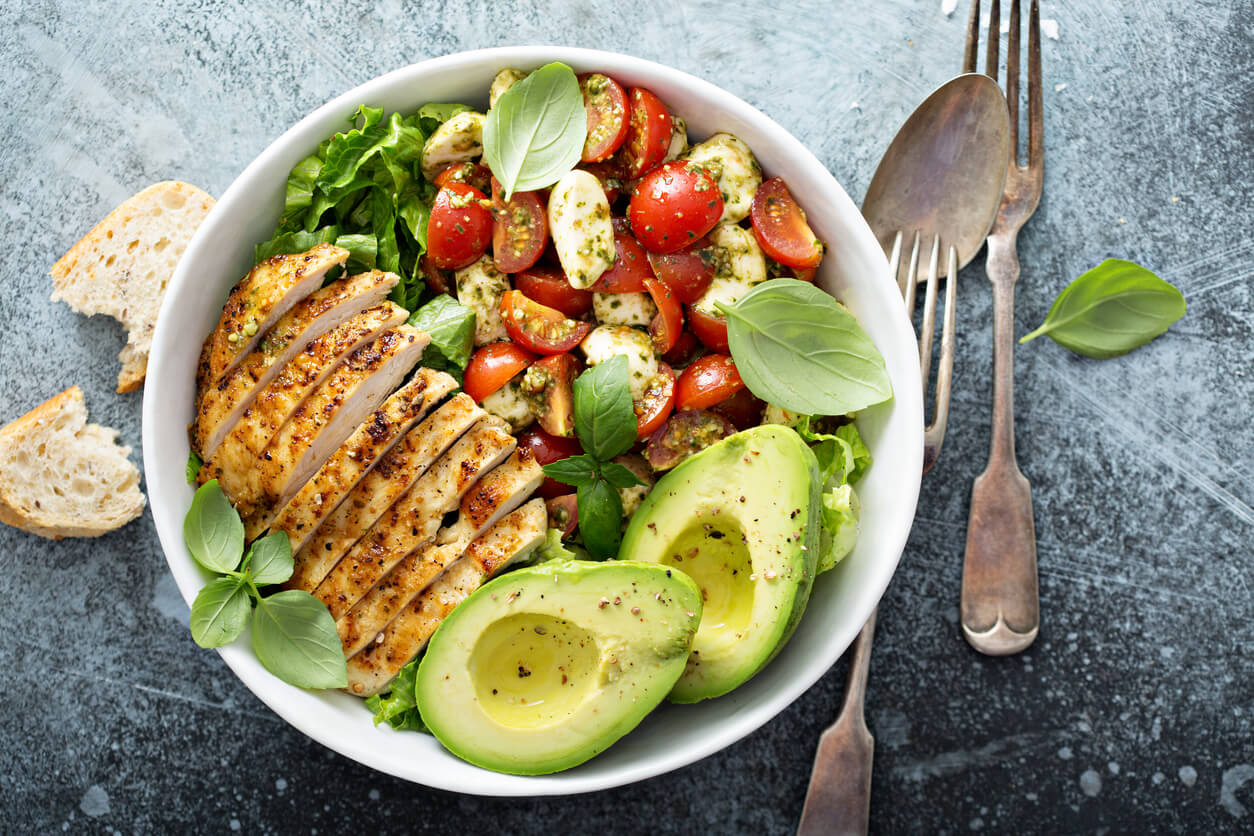
Each meal should contain some source of lean protein, Mahon advises, to feed your bones, muscles, skin, and blood. Â Meat-eaters can look for grass-fed beef, organic chicken, or wild-caught fish like salmon or cod (which are likely to be lower in heavy metals than, say, canned tuna, which the FDA recommends breastfeeding moms consume no more than six ounces of each week). Â Cheese, yogurt, and other full-fat dairy also provide protein, as do eggs, organic dried beans, and legumes like lentils. Â Mahon advises that soy milk be consumed sparingly because of possible hormonal effects, but dairy-free folks can get protein from coconut, hemp, almond, or other nut milks.
3. Dark, Leafy Greens
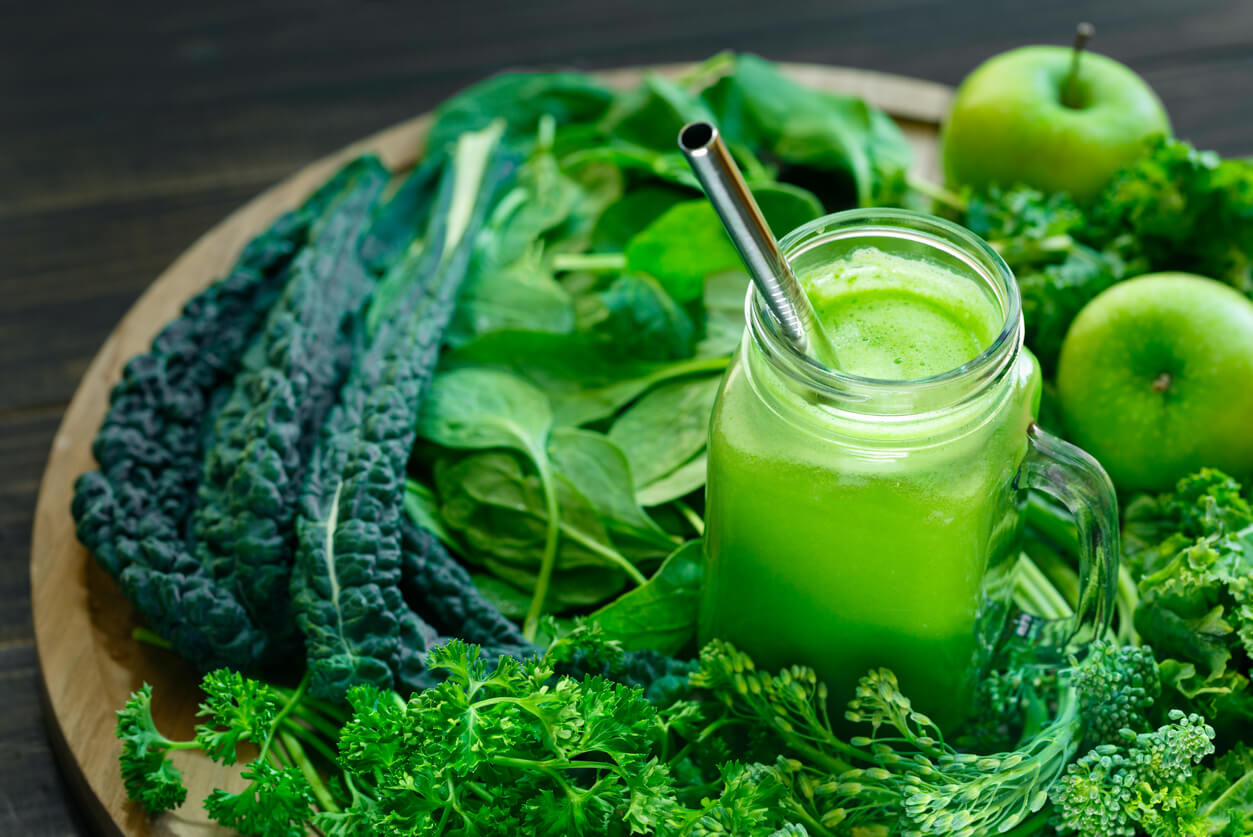
Vegetables like spinach, kale, and watercress have high levels of calcium, iron, vitamins K and A, and folate–a.k.a. super-foods for breastfeeding moms. Â A further benefit of dark greens including kale, beet, mustard, or collard greens, Swiss chard, and arugula is that the body easily absorbs their calcium. Â But Mahon advises that kale and mustard greens are “cruciferous” vegetables, which means they may cause gas and bloating in both mom and baby. Â So go green–but scale back if discomfort arises.
4. Fermented Foods
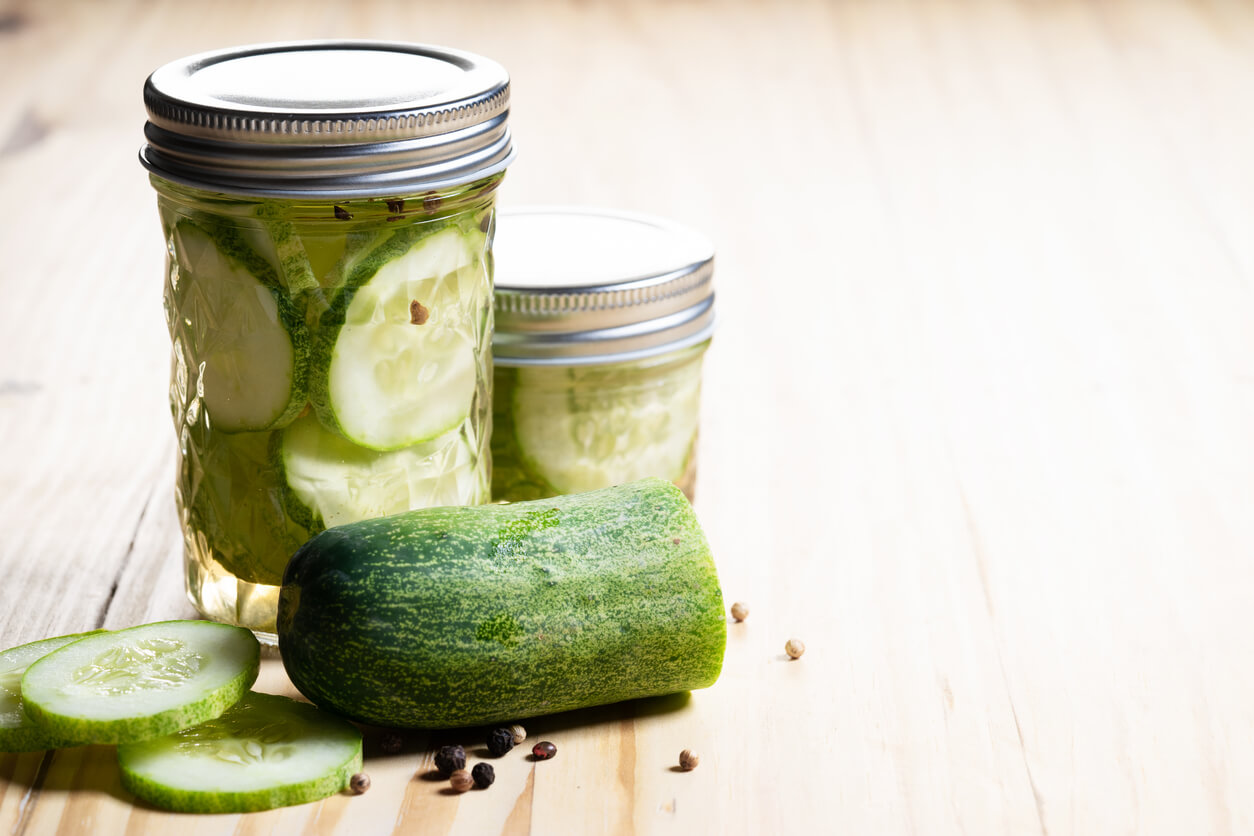
Fermented foods like miso, sauerkraut, homemade pickles, yogurt, and kim chee contain beneficial enzymes, B-vitamins, and a number of strains of probiotic cultures. Â In other words, those foods feed your gut. Â And, says Mahon, “80 percent of our immune system lives in our digestive system.” Â What breastfeeding mom couldn’t benefit from an immune booster?
5. Fresh Fruits and Veggies
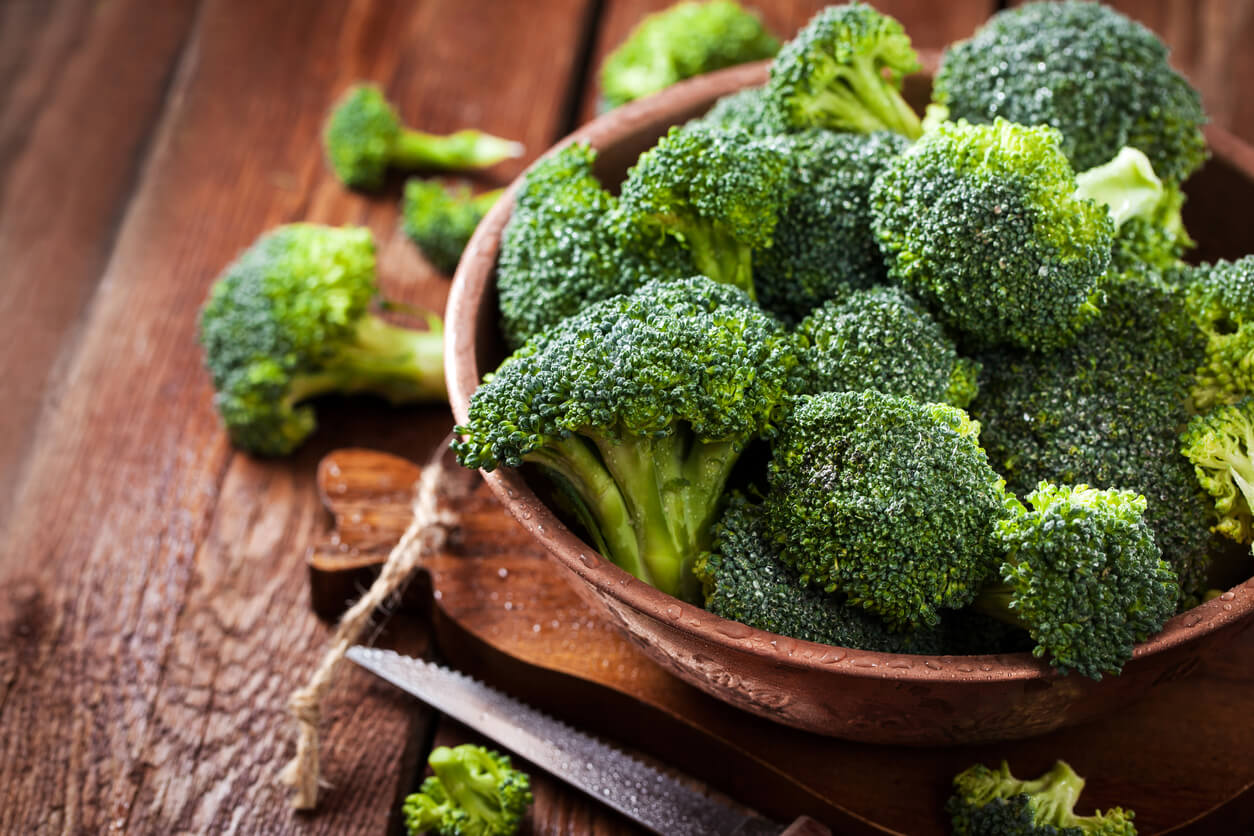
Variety reigns supreme in this category because the higher your number of fresh fruit and vegetable sources, the more diverse your vitamin and mineral intake will be–and that translates to more complete nutrition. Â For fruit and veggie inspiration, try to eat as many colors as you can each day, from purple cabbage to white turnips, orange sweet potatoes, red cherries, and green melons. Â Again, Mahon advises keeping tabs of your intake of cruciferous vegetables like Brussels sprouts, cabbage, broccoli, and cauliflower, eliminating these foods from your diet if they give you or your baby gas.
6. Healthy Fats
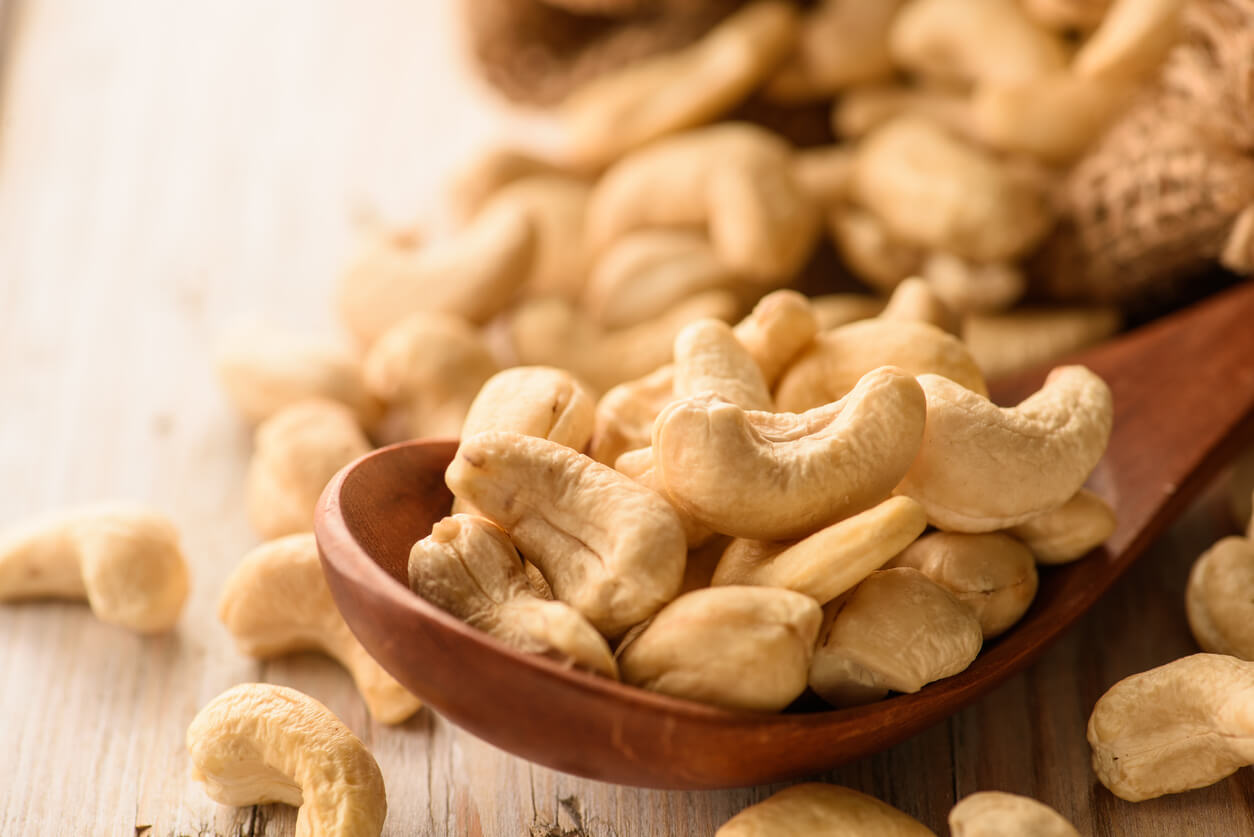
Fat is a breastfeeding mother’s friend; it helps your body absorb vitamins, fight off infections, and generate healthy cells and nerves. Â But not all fats are created equal, so Mahon suggests breastfeeding moms select foods rich in monounsaturated and polyunsaturated fats–which includes omega-3 fatty acids from sources like cold water fish (sardines, halibut, and char among them), avocados, nuts and seeds, and safflower, coconut, olive, and grape seed oils. Â Stay away from trans and saturated fats (anything with hydrogenated or partially hydrogenated oil–most fried foods and many processed snacks), which increase your “bad” cholesterol count and raise your risk of heart disease.
7. Flavorful Herbs and Spices
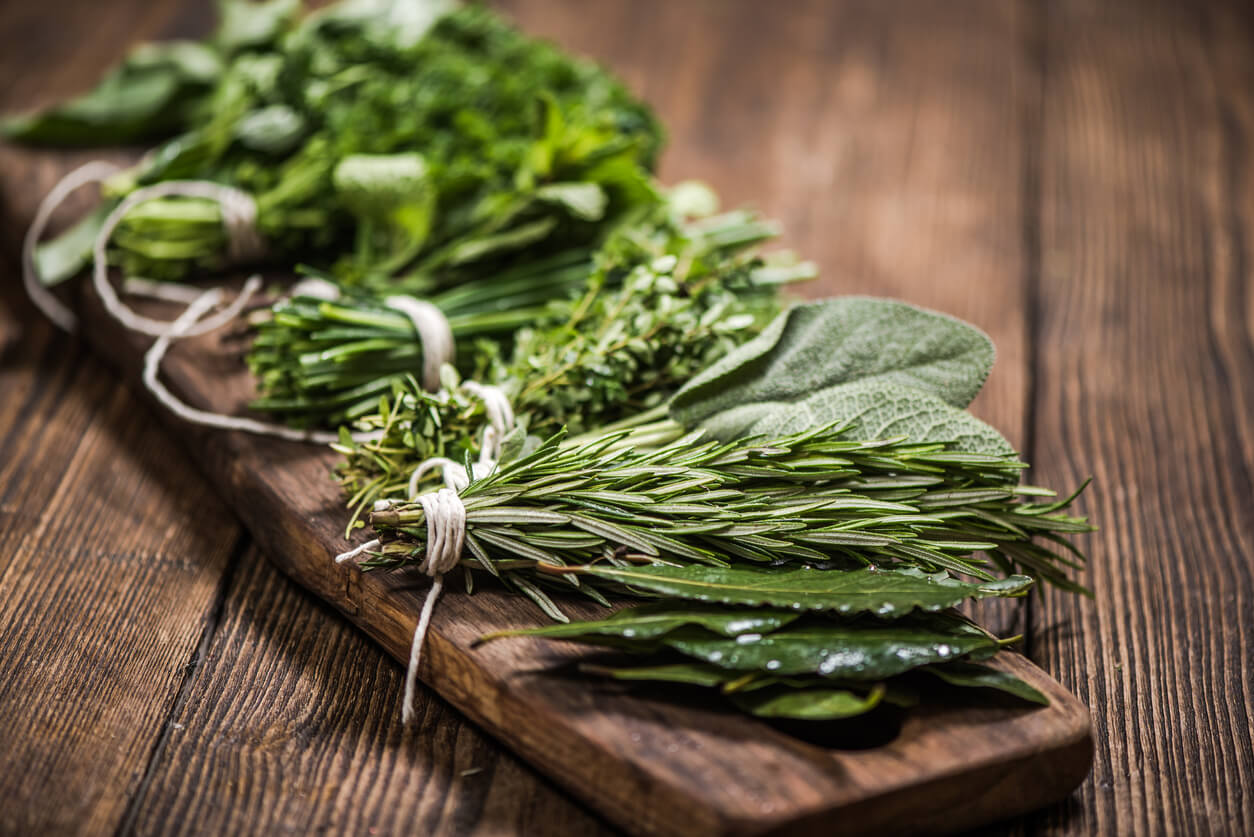
They lend great flavor and savor to your food, but they also have health benefits. Â After all, says Mahon, “all spices originate from plants–flowers, fruits, seeds, barks, leaves, and roots.” Â Many herbs and spices, like cinnamon, turmeric, thyme, basil, fenugreek, cayenne pepper, and ginger, have antibacterial and antiviral properties. Â And don’t forget the salt–true sea salt contains 93 different trace minerals, which are nutrients that the body needs in small amounts to function at its best and salted–opt for low sodium, or salt-free versions when possible.
8. Experiment with Ditching Gluten and Dairy
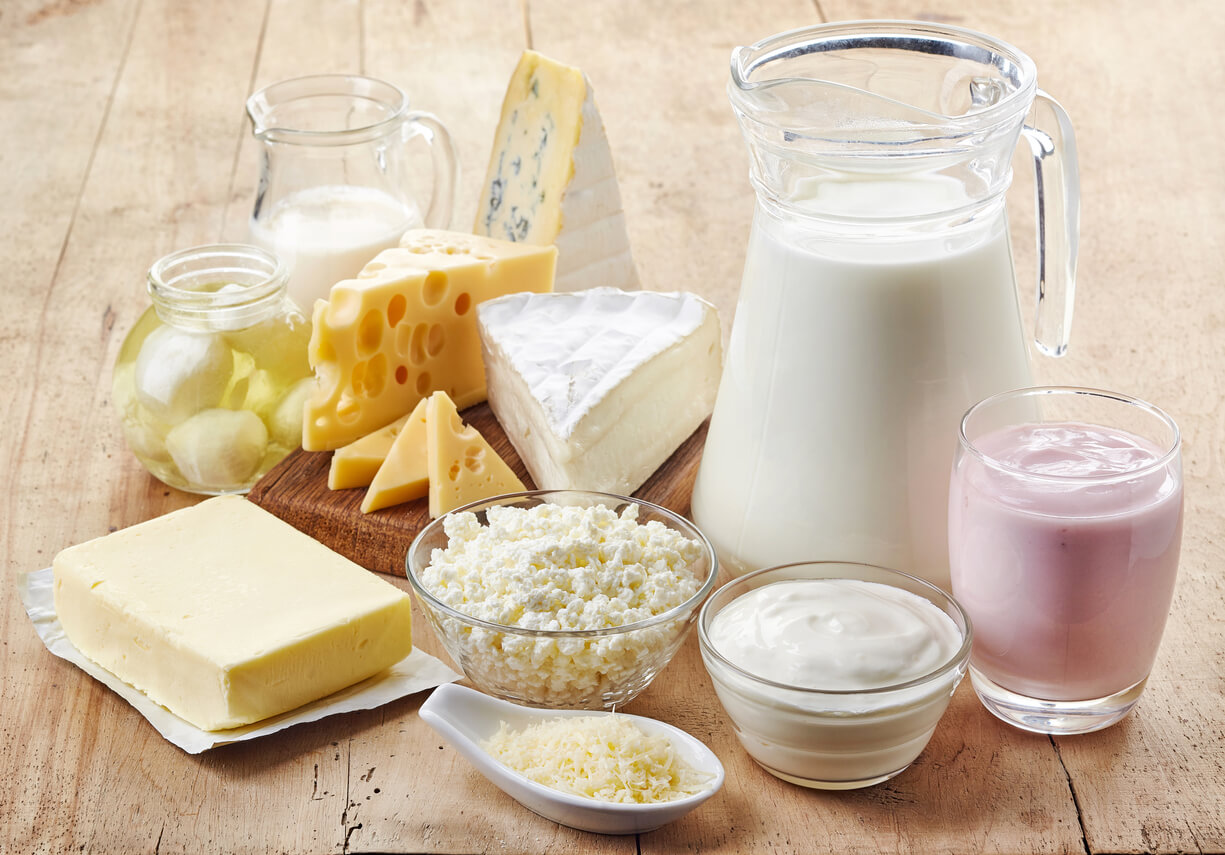
While whole-wheat breads and pastas or full-fat milk and yogurt might be nutrient-rich foods for some breastfeeding moms, others might consider experimenting with dropping gluten and dairy. If your baby regularly experiences constipation, eczema, or upset stomach, Mahon recommends dropping gluten and dairy–either together or one at a time for 3-4 weeks to see which is the culprit. Re-introduce them one at a time, 2-3 days apart, noting baby’s symptoms. If you see a reaction, stay away from the culprits. It will be a worthy sacrifice–especially given the number of high quality gluten- and dairy-free products in markets today.
9. Take Care of Your Food

Mahon says that eating organically is a healthy lifestyle, but it doesn’t have to be costly. There are many affordable options for buying organic produce and meat in grocery stores or farmer’s markets throughout the country. To protect your investments Mahoney suggests you wash all fresh fruits and vegetables with water before consumption-especially if they’re not organic because pesticides can linger on them after harvesting. You should also make sure any meats purchased get refrigerated immediately so bacteria isn’t able to grow inside of them.
10. Limit Caffeine and Alcohol

Breastfeeding moms don’t have to give up that all-important cup of morning coffee or caffeinated tea, but the Mayo Clinic recommends no more than 16-24 ounces of caffeine each day. Â Too much may leave you feeling jittery–and in even worse cases it might disrupt your baby’s sleep schedule.
The Mayo Clinic also advises avoiding alcohol altogether, saying “There’s no level of alcohol in breast milk that’s considered safe for a baby”. If you do have a drink, don’t breastfeed for 2-3 hours; you can “pump and dump” to keep your milk supply flowing during that period.
